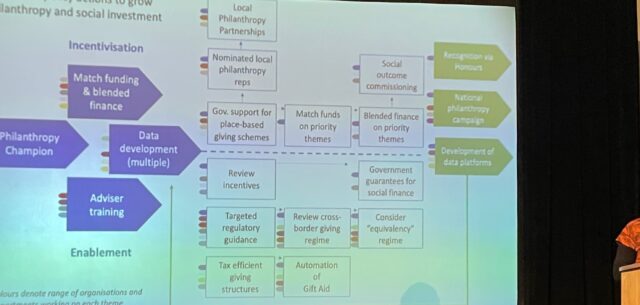The world has 6 months to avert a climate crisis according to Fatih Birol, executive director of the International Energy Agency (IEA). The IEA are urging governments to put green policies at the heart of the post-pandemic recovery plans: philanthropists have a critical role to play in supporting this.
When thinking about the humanitarian disaster wreaked by COVID-19, environmental issues have been somewhat eclipsed, despite the myriad ways in which the pandemic and the degradation of the environment are connected. To take just a couple such connections: our destruction of habitat globally and the illegal wildlife trade directly contribute to the rise of zoonotic diseases like COVID, as species are crammed into more and more crowded spaces and people come into more contact with them; and air pollution has been shown not only to make people more vulnerable to the worst effects of COVID but to help spread it.
Philanthropists who have been contributing to the global environmental effort for a number of years have been forced to examine where their priorities lie given the humanitarian crisis unfolding around them. For many, this has led to a recommitment to the cause they care most about, as the pandemic has only served to reinforce their belief that a healthy environment underpins everything.
Many of these committed philanthropists are members of the Environmental Funders Network, a UK-based network of foundations, family offices and individual donors supporting environmental causes. Their aim is to increase the amount of financial support for environmental causes and to improve its overall effectiveness through collaboration and sharing.
Their members agree that it is more important now than ever to protect and conserve the environment, and that our emergence from the COVID-19 crisis gives a unique opportunity to put the environment and our health at the centre of bail-out and economic stimulus negotiations.
Over 40 foundations have signed the UK Funder Commitment on Climate Change facilitated by the Association of Charitable Foundations (ACF). It is based on the recognition that climate change poses a serious risk to the pursuit of the charitable aims of all foundations, whatever their mission and field of expertise. Signatories commit to six pledges, which enable them to play a part in addressing the causes of climate change and supporting adaptation to its effects.
The commitment states that “Climate change is a health issue, an equality issue, an educational issue, an economic issue, a cultural issue, a scientific issue, a security issue and a local community issue, as well as an environmental issue. There is a special responsibility on foundations, whose assets are held for the public good, to use their resources and independence to rise to the challenge.”
ACF acknowledge that this pledge is the first step for action and not the end goal, but a collaboration is necessary to work towards common goals.
There are many strands of environmental action and they are all needed together for a fairer and more sustainable future. With the same passion at heart, members of the Environmental Funders Network and others tackle the issues from different angles.






